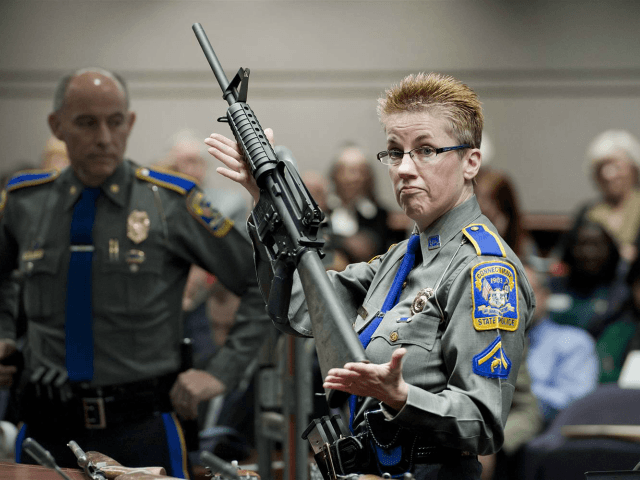What if the police — or an angry relative — could convene a secret hearing and, without notifying you, have you arrested for 21 days? Or shut down your newspaper for 21 days? Or seize your home for 21 days? Or torture you for 21 days?
And what if they did not have to prove that there was probable cause that you had committed a crime — but rather only that they thought you might be “dangerous” (whatever that means?)
Crazy, you say? Unconstitutional?
Well, that is exactly what some conservatives are proposing with respect to the Second Amendment. It is amazing that anyone outside of Bloomberg and Giffords would think gun confiscation order are a good idea.
But by calling them red flag laws or “extreme risk protection orders,” these conservatives have convinced themselves that gun confiscation orders are something other than what they are: a suspension of the Second Amendment without due process, without probable cause, and, in fact, without any crime at all.
The six states which have enacted these laws are, in most cases, the gun-hating jurisdictions you would expect: The Left Coast, Connecticut, and the cowards of Tallahassee, Florida.
With some variations, they allow the police or others to convene a Kafkaesque secret proceeding, in which you can be stripped of your gun rights and Fourth Amendment rights, even though you are barred from participating in the hearing or arguing your side of the dispute.
The first you will learn of it is when police or a SWAT team knocks on your door — ready to ransack your house and, if you resist, to do even worse.
The standard is not whether there is probable cause to believe that you have committed a crime, as the Constitution requires. Rather, the standard is some subjective determination about whether you represent some “danger.” As in the film Minority Report, you are stripped of your fundamental constitutional rights based on the subjective possibility of a future crime or, rather, a thought crime.
And Americans should know from our history with temporary restraining orders that many accusers lie or make mistakes. Even more reach delusional conclusions, and the target is frequently an abused victim who is most in need of the wherewithal to protect herself against her abuser.
Remember the woman in New Mexico who obtained a temporary restraining order against David Letterman because he was supposedly sending her secret “code” words over the airways? Well, if temporary restraining orders have real due process problems what should we expect from the gun confiscation order designed to mirror them?
Defenders of gun confiscation orders point out that after a fixed period of time — say, 21 days — the gun owner can ask for a court hearing to restore his or her constitutional rights. But what does it say about the orders that the constitution can be suspended in a secret hearing with respect to Second Amendment rights in the first place?
Michael Hammond is the Legislative Counsel for Gun Owners of America and a guest columnist for “Down Range with AWR Hawkins.”

COMMENTS
Please let us know if you're having issues with commenting.